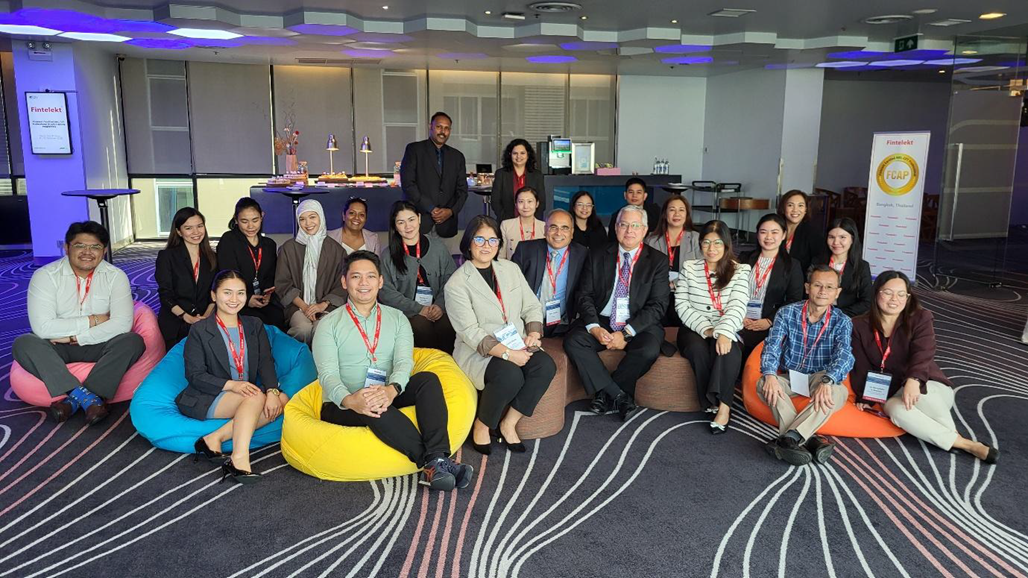Held on October 9 and 10, 2025, at Hotel Aloft, Bangkok, the 2025 Fintelekt Certified AML/CFT Professional (FCAP) programme brought together professionals from across Asia representing both public and private sector institutions for an immersive learning journey. The programme is supported by the Asian Bankers Association (www.aba.org.tw).
The FCAP programme is an intensive two-day masterclass crafted for both aspiring and experienced AML/CFT professionals who are committed to strengthening their skills and staying ahead of emerging financial crime threats. Designed as a practical, hands-on learning experience, FCAP equips participants with the latest tools, techniques, and insights shaping the world of anti-money laundering (AML) and countering the financing of terrorism (CFT).
(1) Day One - Opening Remarks
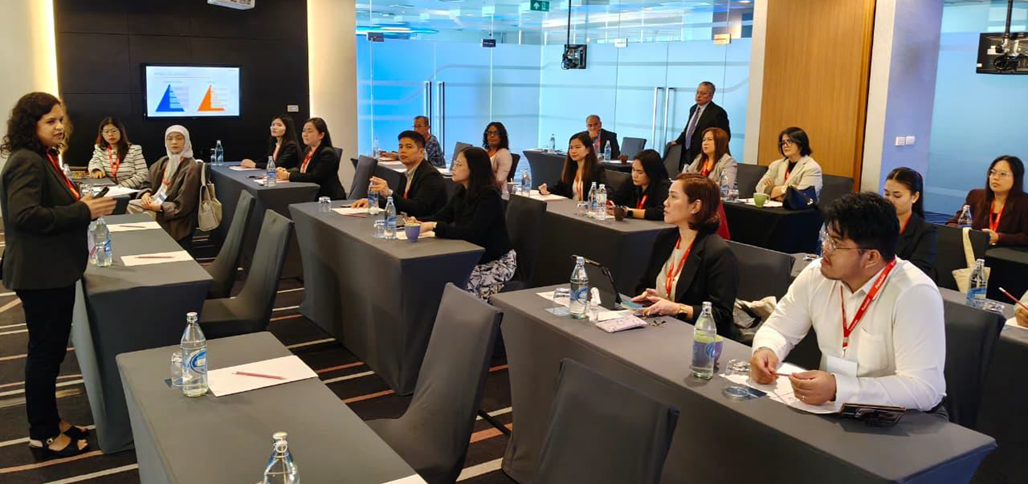
Opening the programme, Arpita Bedekar, Chief Operating Officer at Fintelekt, explained that FCAP was created in response to a growing regional demand for an advanced certification that not only demonstrates professional commitment but also contributes meaningfully to strengthening AML/CFT frameworks within institutions, nations, and the global financial system.
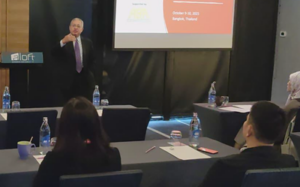 Mig Moreno, Deputy Secretary-Treasurer, Asian Bankers Association, underscored the importance of continuous learning in an ever-evolving financial crime landscape. He spoke of ABA’s role in fostering collaboration among bankers and financial professionals across Asia, enabling collective progress on issues of strategic importance such as AML/CFT.
Mig Moreno, Deputy Secretary-Treasurer, Asian Bankers Association, underscored the importance of continuous learning in an ever-evolving financial crime landscape. He spoke of ABA’s role in fostering collaboration among bankers and financial professionals across Asia, enabling collective progress on issues of strategic importance such as AML/CFT.
The opening session concluded with an ice-breaker game in which participants were introduced to their group and encouraged to interact with and get to know their peers in the classroom.
(2) Day One - Training Sessions
The technical sessions on the first day were led by Vikas Tandon, Trainer, Fintelekt, who set the tone with an insightful discussion on the fundamentals of AML and CFT beginning with a strategic understanding of risks and the application of a risk-based approach. Drawing from his extensive practical experience, he highlighted the importance of strong AML governance, balancing compliance imperatives with business objectives, and aligning them with an organisation’s defined risk appetite.
Vikas also reflected on the evolving role of compliance professionals. Once seen as a cost centre, today’s compliance officer is the guardian of an organisation’s integrity and reputation. With regulators tightening scrutiny and financial criminals becoming more sophisticated, he emphasised the need for proactive, intelligent compliance.
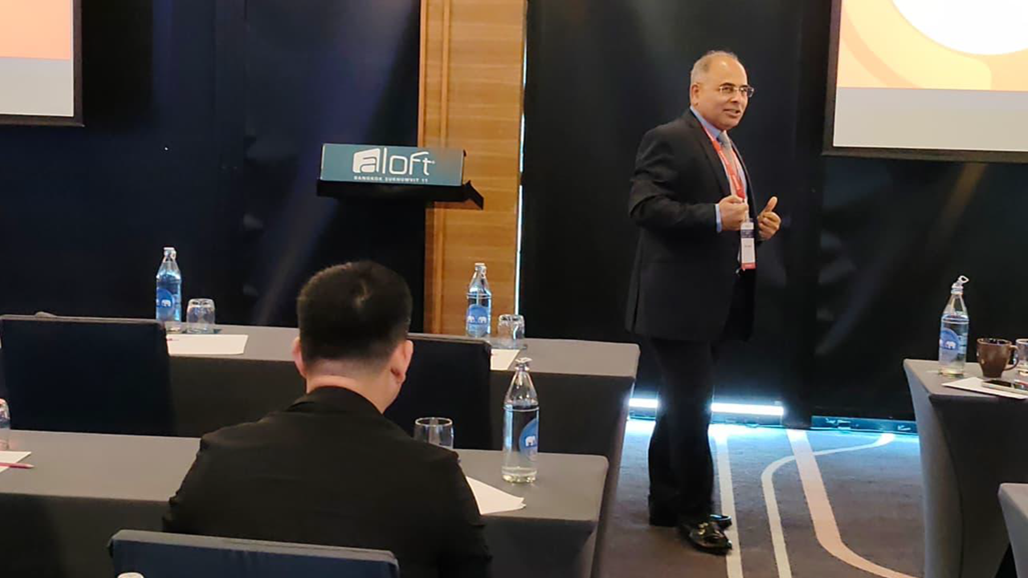
Vikas continued the training programme by guiding participants through the evolving priorities in customer screening and due diligence. He explored key areas such as sanctions compliance and screening, the heightened risks associated with politically exposed persons (PEPs), and the importance of adverse media monitoring as an early warning tool for identifying potential reputational and financial crime risks.
The session also delved into the complexities of ultimate beneficial ownership (UBO) highlighting the challenges in uncovering the true owners behind legal entities, corporate vehicles, and layered arrangements. Vikas discussed practical methods for establishing beneficial ownership and source of funds, underscoring why transparency and rigorous verification are fundamental to an effective AML/CFT framework.
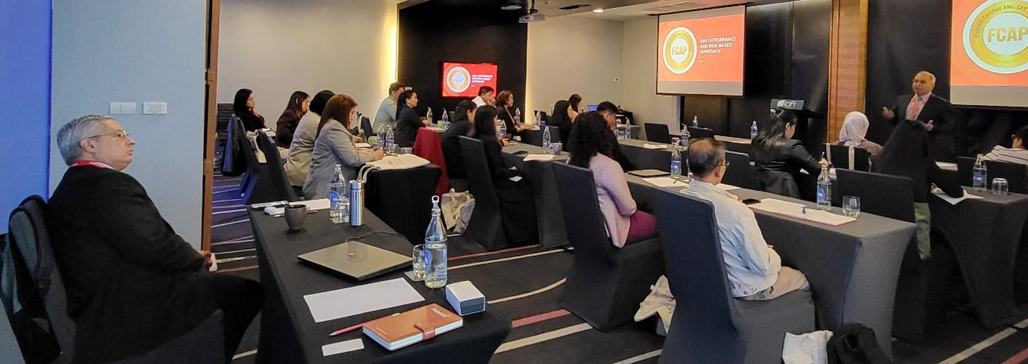
A special guest session featured Dr. Naomi Doak, Regional Coordinator, Counter Wildlife Trafficking, Wildlife Conservation Society, Bangkok. Dr. Doak shed light on the regional trends in wildlife trafficking and environmental crimes, and their growing intersection with organised criminal networks.
She discussed emerging money laundering typologies linked to these crimes and noted that FATF assessments are increasingly evaluating countries on their effectiveness in tackling environmental offences. Her session served as a strong reminder of the compliance community’s critical role in detecting and reporting suspicious payments tied to illegal wildlife trade and the value of technology and collaboration in doing so.
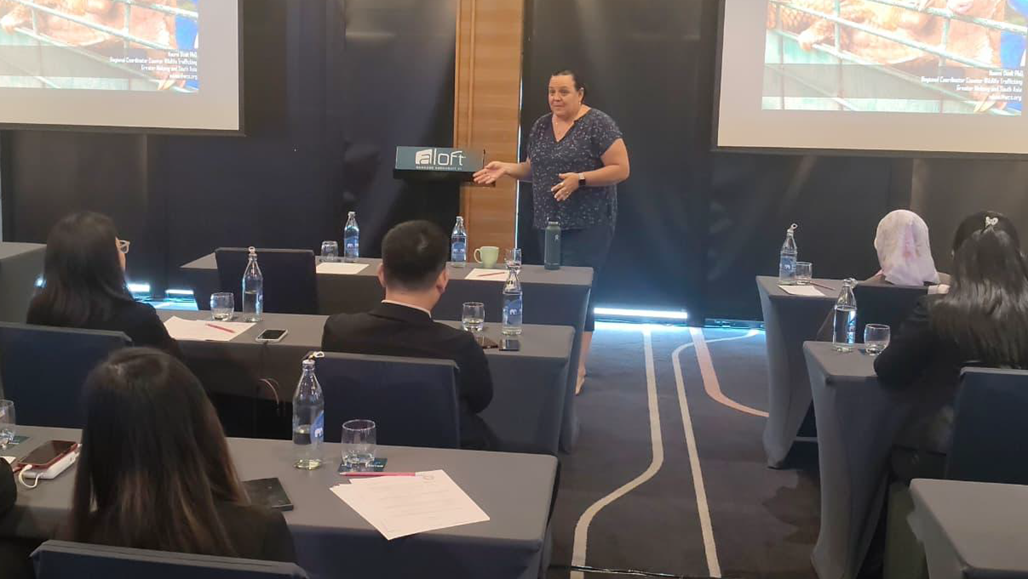
Day One - Group Work
The day concluded with a lively group activity, where participants were divided into teams to assess ML/TF risks associated with specific financial products and design practical mitigation strategies. Each team presented its findings, sparking an exchange of perspectives and concluding with insights and reflections from Vikas.
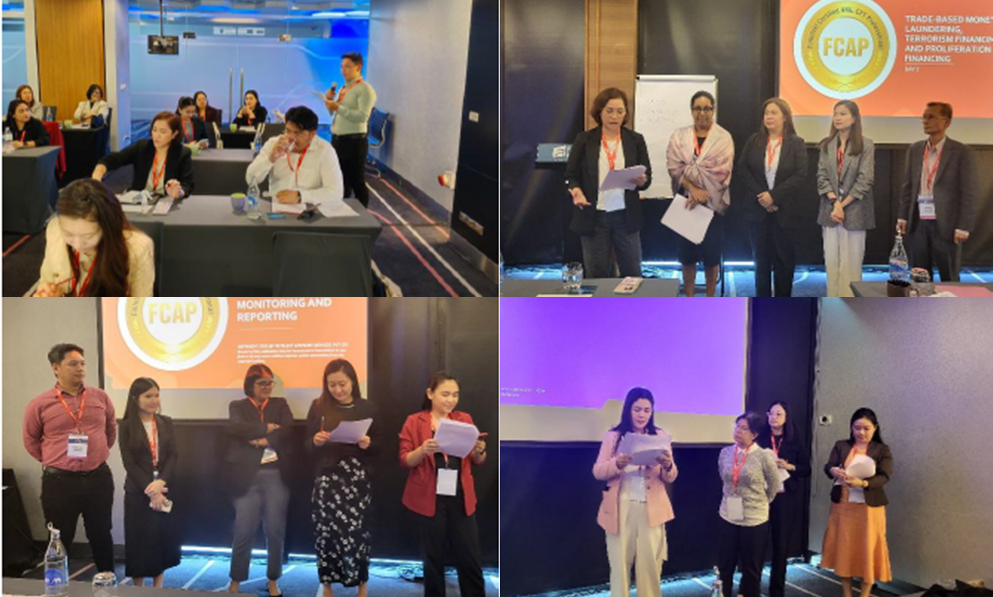
(3) Day Two - Training Sessions
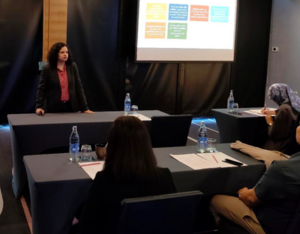 The second day of the Fintelekt Certified AML/CFT Professional (FCAP) programme began with a session by Arpita Bedekar on the fundamentals of virtual assets and cryptocurrencies.
The second day of the Fintelekt Certified AML/CFT Professional (FCAP) programme began with a session by Arpita Bedekar on the fundamentals of virtual assets and cryptocurrencies.
Arpita underscored the growing importance for compliance professionals to stay informed about the rapid developments in the crypto ecosystem. She highlighted how illicit actors continue to exploit regulatory gaps and emphasised the need for AML officers to understand these vulnerabilities in order to safeguard their institutions from exposure to crypto-related financial crimes.
Building on the theme of emerging risks, Julia Chin, Trainer, Fintelekt, led an engaging session on risks and vulnerabilities in digital payments. Drawing from real-world examples, she encouraged participants to consider how frauds and scams affect ordinary people and the broader implications for financial integrity. Julia also discussed the critical role of financial inclusion in maintaining trust and resilience within the financial system.
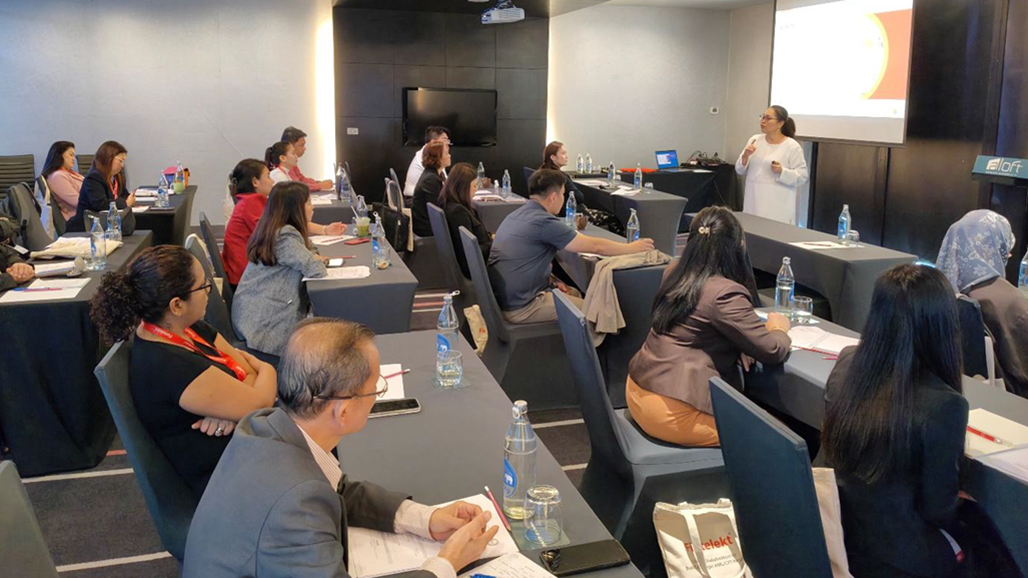
The next session by Vikas Tandon delved into the complex world of trade-based money laundering (TBML), exploring the inherent risks in trade finance and the importance of robust due diligence measures to identify suspicious activity.
He then expanded the discussion to terrorism financing, cross-border threats, and proliferation financing. He walked participants through the key stages of the terrorism financing process and the challenges faced in identifying and assessing proliferation financing risks.
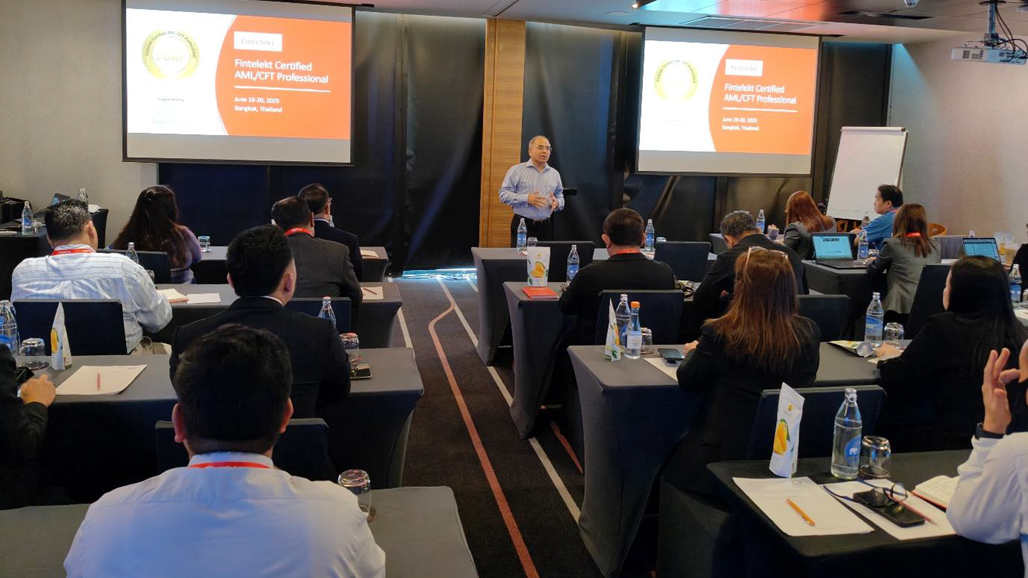
The final session of the day focused on transaction monitoring, a critical component of every AML framework. Julia explained that effective monitoring begins with understanding a customer’s normal behaviour and transactional profile, which serves as the baseline for identifying unusual or suspicious activities. She also discussed the importance of calibrating monitoring systems in line with an institution’s risk appetite and ensuring that alerts are both meaningful and actionable.
She highlighted how automation, analytics, and AI are transforming monitoring processes but cautioned that technology alone cannot replace the human element. Ongoing training and exposure play a vital role in sharpening the analytical instinct and empowering compliance teams to detect and report suspicious activity with greater accuracy.
Day Two - Group Work – Day Two
To reinforce the learning, participants engaged in a hands-on group exercise based on a transaction monitoring case study. Each group was assigned a distinct role, such as regulator, bank, technology provider, or auditor, and tasked with analysing the case from their respective perspectives.
The group leaders then presented their findings, which led to an exchange of insights and a comprehensive wrap-up by Vikas.
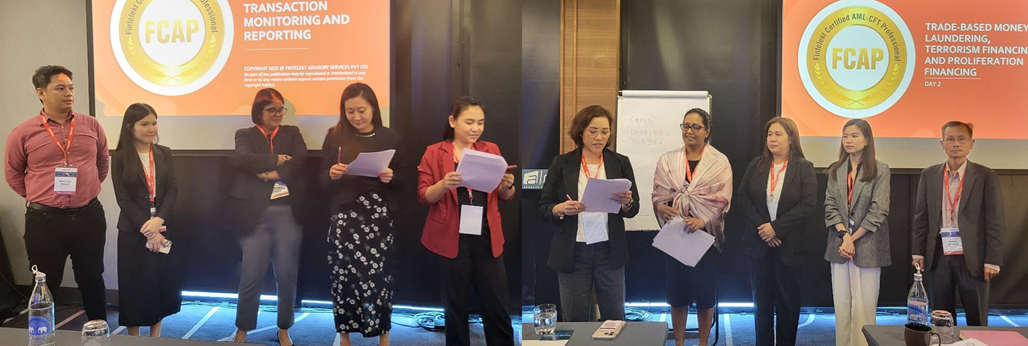
(4) Participation
The FCAP programme in Bangkok was well attended by 19 participants from banking, fintech, casinos, regulatory and supervisory institutions across 5 countries in Asia, viz. Brunei, Mongolia, Lao PDR. Philippines and Sri Lanka.
List of Participating Institutions:
- Bangko Sentral ng Pilipinas
- Banque Pour Le Commerce Exterieur Lao Public (BCEL)
- DFCC Bank
- Equicom Savings Bank
- LaVie Resort and Casino
- M Bank
- National Digital Payments Network
- Newport World Resorts
- Philippine Amusement and Gaming Corporation (PAGCOR), Philippines

